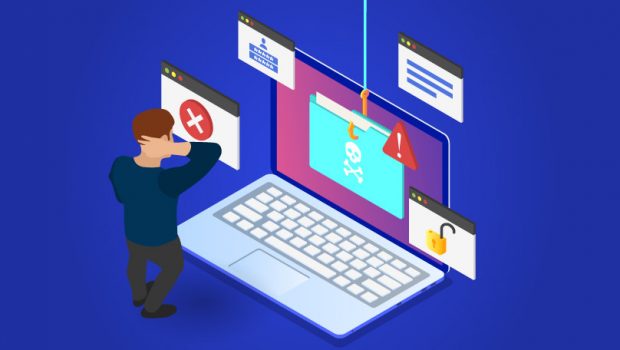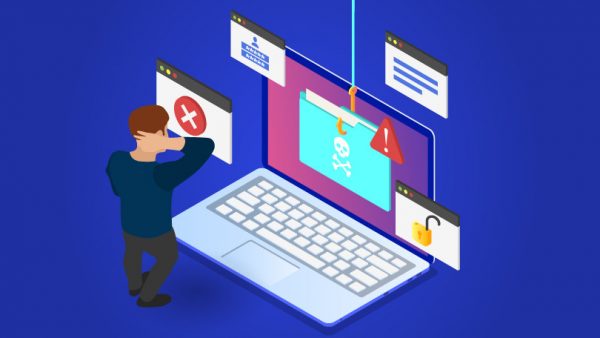How Your Staff Can Avoid Phishing Email Scams
Phishing is becoming a bigger issue year after year. In 2018, one-third of all data breaches involved phishing. But what is phishing, exactly? Simply put, phishing is a method of hacking where a hacker attempts to steal sensitive information from the recipient via email by disguising themselves as a trustworthy entity.
One out of 25 branded emails is a phishing scam, with most hackers posing as Microsoft or Amazon. With 76% of organizations targeted by a phishing scam in 2017, it’s important for today’s business owners to stay on top of their email communication. Business owners are held accountable for the actions of their employees in the workplace, and not all employees can easily spot a phishing email. Here’s how you can teach your staff to avoid phishing email scams:
Invest in Cybersecurity Training
Professional security awareness training can go a long way with your team. Chances are, management doesn’t know everything there is to know about cybersecurity and how it can derail an organization or individual employees. Proper training will help your team protect the company and themselves. Not only will they learn how to identify malicious emails—even when they look legitimate—but they’ll also know how to take proper action from there. Cybersecurity training will also teach your staff how to recognize different types of security threats.
Test Your Team
According to a study conducted by the Ponemon Institute, phishing simulations can double employee awareness retention rates. A mock phishing attack can easily teach your employees the message you’re trying to convey: it’s easy to get hooked into a scam. These mock emails help you learn more about how effective your training was, and how your employees handle it. Ultimately, they offer a high-level overview of what your team has learned, through a controlled and safe environment. Of course, you should work with a professional IT and security team to run your tests.
Teach Them Social Engineering
Social engineering is a term that involves the manipulation of individuals into providing sensitive user data—like passwords or credit card details—by means of social context and familiarity. People trust what’s most familiar to them, and savvy hackers use this against their victims.
Hackers use social engineering because, in most cases, it’s easier to exploit a person’s weakness than to find vulnerability in software. When your team has a deep understanding of social engineering, it provides them with a thorough understanding of what’s happening in the mind of a hacker. When they can get to the root of an issue, it creates a deeper sense of awareness and builds a connection.
Don’t Create Fear
Company culture is so important in today’s business world. And while cybersecurity is crucial for your organization, it’s equally important that you don’t create a fearful culture in the workplace. Rather than scaring people into staying safe on company networks, take an approach that promotes a deep understanding of phishing. A fear-based approach could prove ineffective in the long-run, while a pragmatic one allows your team to take ownership of a situation from a rational perspective.
Think Twice About Your Own Messaging
After you’ve taught your team about phishing, it’s important for you to consider phishing warnings in the emails you send yourself. For instance, employees are taught to keep an eye out for potentially foul emails by paying attention to telltale signs. Those signs include messaging that has a sense of urgency or contains an unexpected attachment.
On the same token, refrain from sending messages that convey those signs they’ve been instructed to avoid. This means avoiding using links in your messaging or sending emails that contain attachments or request personal information and sensitive data.

















